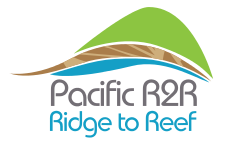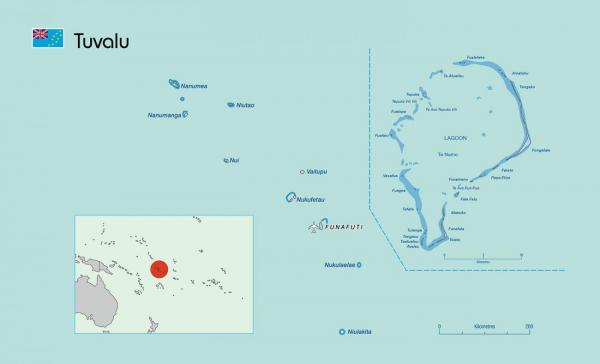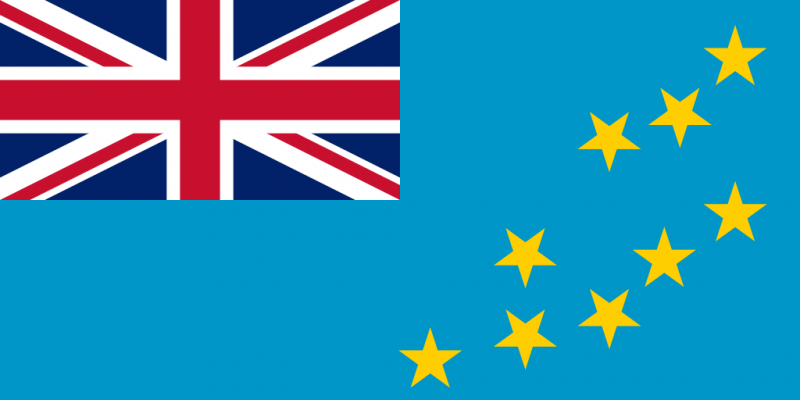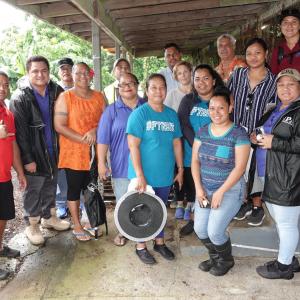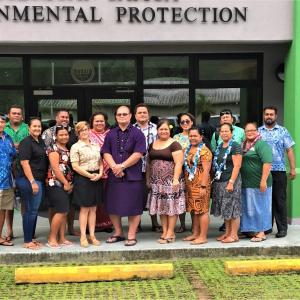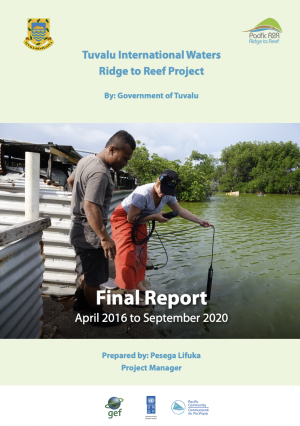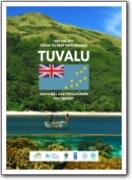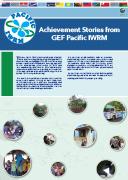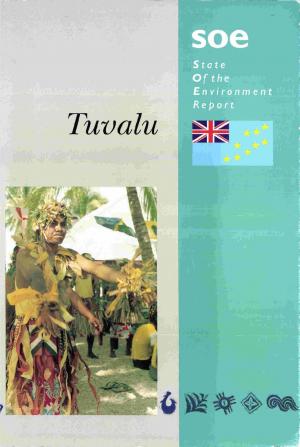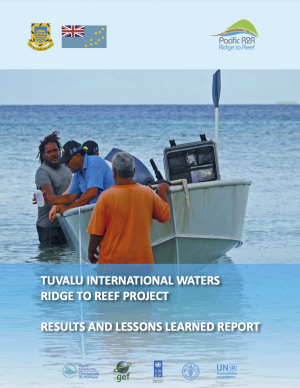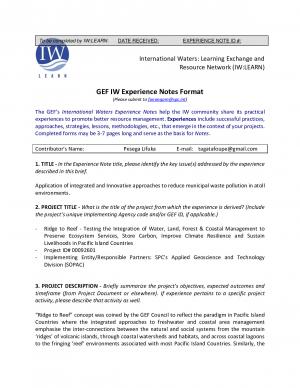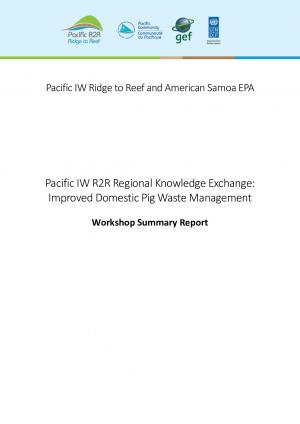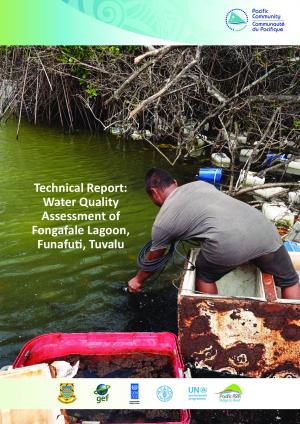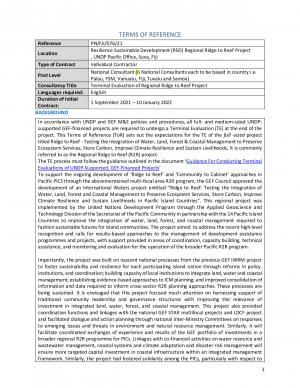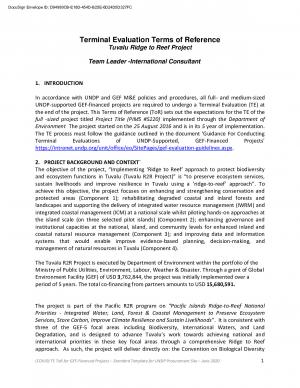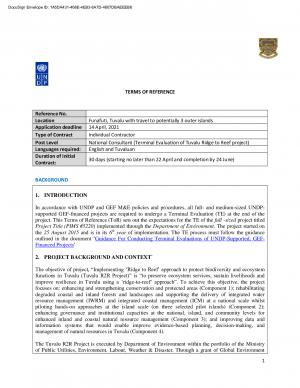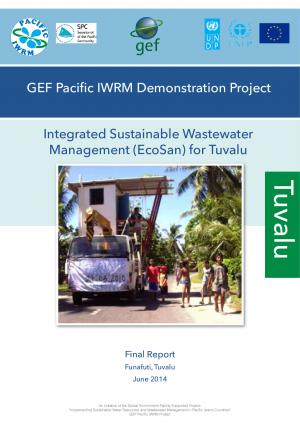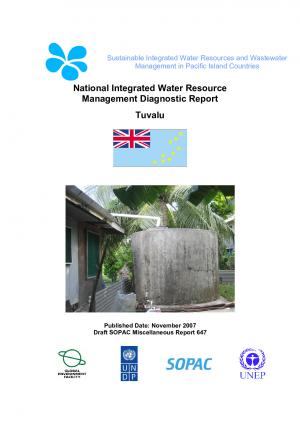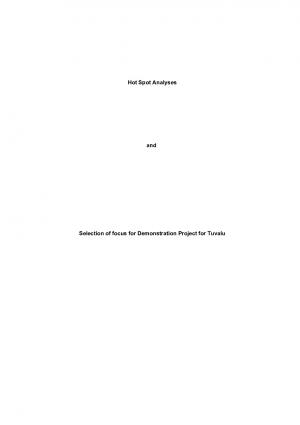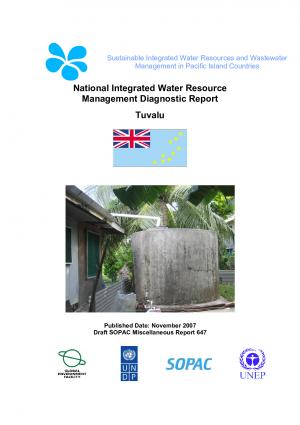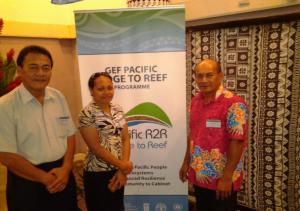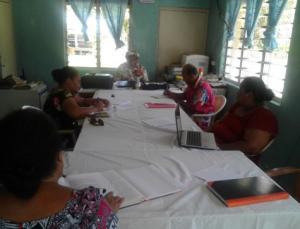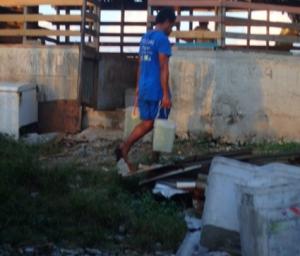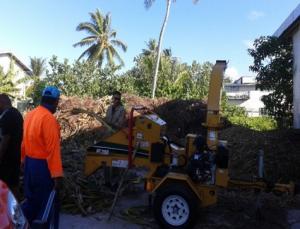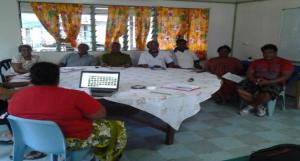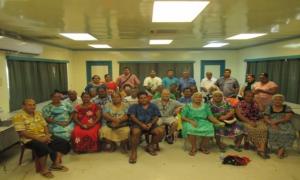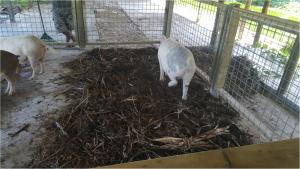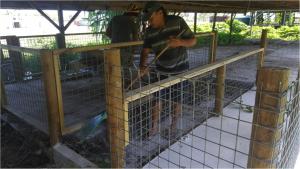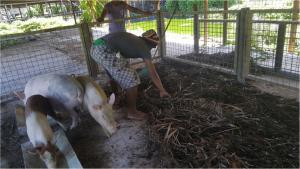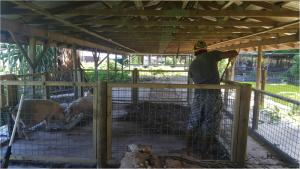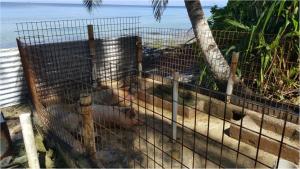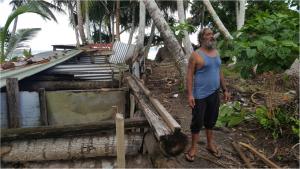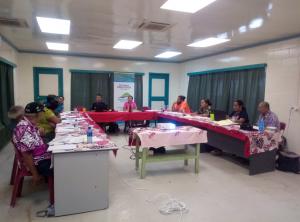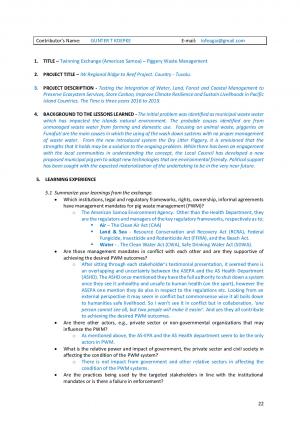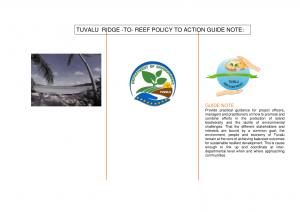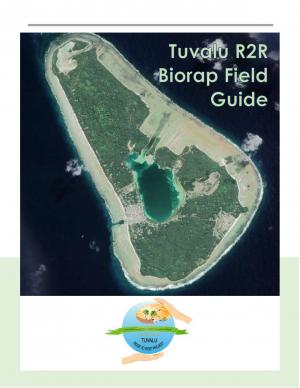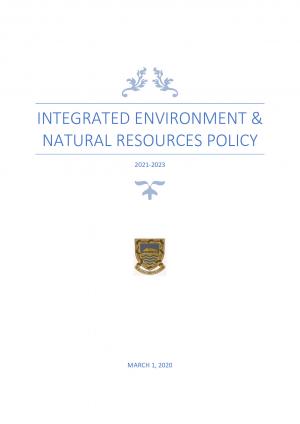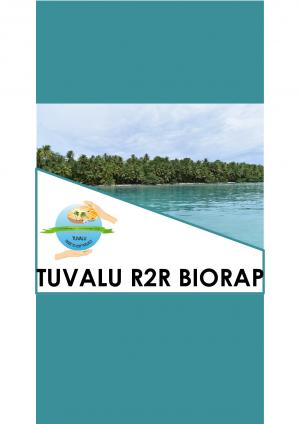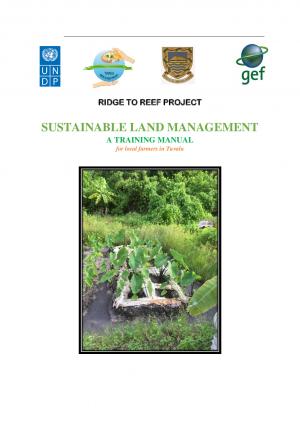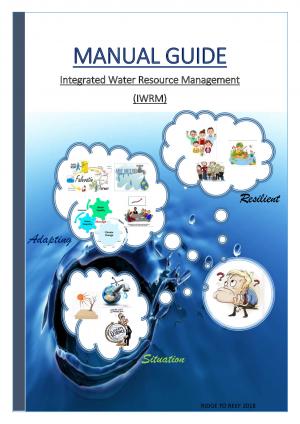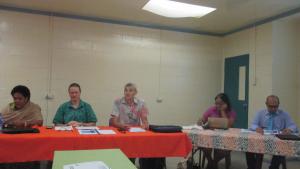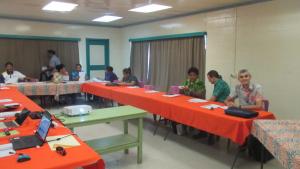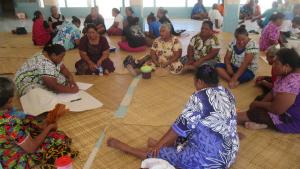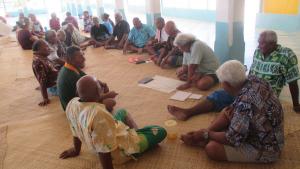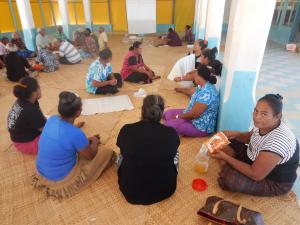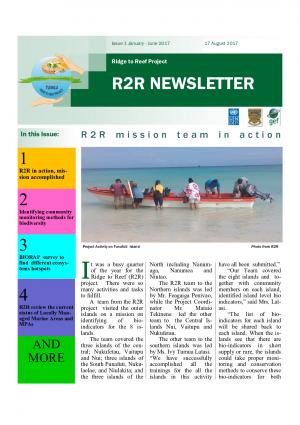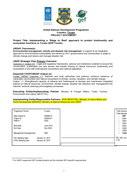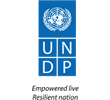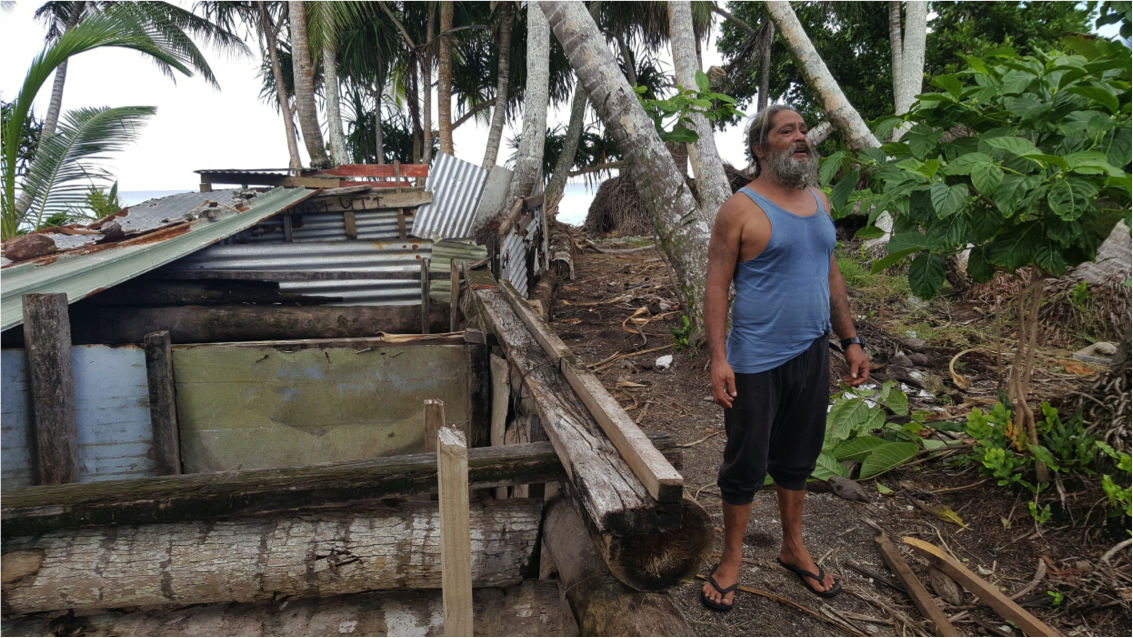
Project Overview
Tuvalu sits north of Fiji and is made of eight small coral islands, with a population of almost 10,000. The capital island of Funafuti has about 40% of the inhabitants with over 4,000. Funafuti faces two main environmental challenges; water shortages and wastewater pollution, ultimately impacting on human health and the coral lagoon. Densely populated with poor soils, farming and fishing are the primary economic activities. There are less than 1000 tourists per year.
Environmental concerns are pressing and include water supply shortage as there are no surface or potable groundwater, beachhead erosion, damage to coral reef, spreading algal blooms, contaminated land and the effects of climate change as rising sea levels. All water used on Funafuti is harvested from rain. Most water on the outer islands is collected this way however there is more use of groundwater. Most of the outer islands have available groundwater though its quality is largely unknown, on Funafuti it is polluted and brackish beyond human use.
Issues of water shortages are increasing annually with increasing populations, erratic weather and rainfall patterns. The primary freshwater source is from stored household and communal rainwater systems, with all households being supplied by donor funded water tanks. Rainwater storage capacity in most islands of Tuvalu can accommodate up to 50 days without rain. Some households however still struggle with maintaining water harvesting equipment and lack water
conservation skills and/or tools. Many suffer due to a large family residing under a small roof catchment.
During dry periods, the desalination plant struggles to provide sufficient water for the population and long waiting lists ensure that some families go without water for days. Government supplied freshwater is limited to 20L per household during drought conditions. The estimated demand for freshwater in Funafuti is close to the estimated sustainable freshwater yields indicating vulnerability to variations in climate. The need to reduce demand and conserve water is not widely appreciated, and complex cultural and land tenure conditions limit the opportunity for intervention by government. Practical training will not only raise awareness but will also provide households with the necessary skills to take action and responsibility.
When flush toilets are used, insufficient soil quality, depth to groundwater and area for irrigation in Tuvalu mean that septic tanks cannot function as they are designed. There is insufficient area for adequate effluent distribution and run-off is not correctly treated before seeping to groundwater. To further compound this issue, there are no septic tank
pumps to de-sludge the septics, nor an operational sludge treatment plant on Funafuti. As such, poorly treated wastewater is discharged to groundwater and excess sludge is simply removed to pits dug beside the septic tank. This practice is a major human health and environmental hazard. This issue is compounded by the use of flush toilets
that are estimated to use 30% of household harvested water.
During dry periods some families chose not to use the flush toilet and open defecation is common. This has server health implication to the community. Natural disasters that can contribute to the vulnerability of Tuvalu include cyclones and drought, both of which could be exacerbated by climate variability and change, and sealevel rise. Climate models are not yet able to state with any certainty what changes in variability and extremes may occur.
The above issues have begun to be addressed through the cross-sectoral planning and management initiatives of the GEF Pacific IWRM Project. Needs still exist and have been identified within a Ridge to Reef context. These include demonstrating innovative approaches to pig waste management; targeted scientific approaches to optimise on-site waste management systems and to identify causal links between land-based contaminants and the degradation of coastal waters and; building national and local capacity for waste management implementation.
Project Components:
|
1. Demonstration of innovative approaches to pig waste management on Funafuti Atoll, Tuvalu 2. Targeted scientific approaches to optimise on-site waste management systems and to identify causal links between land-based contaminants and the degradation of coastal waters 3. National and local capacity for waste management implementation built to enable best practice in coastal waters, land and public health protection |
Key Resources
Project Contacts

IW R2R Project Manager
[email protected]
Resources
| File(s) | |
|---|---|
| File(s) | |
|---|---|
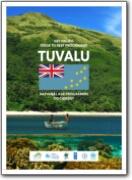
|
Tuvalu |
| File(s) | |
|---|---|
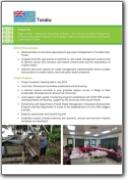
|
Project Progress Tuvalu |
